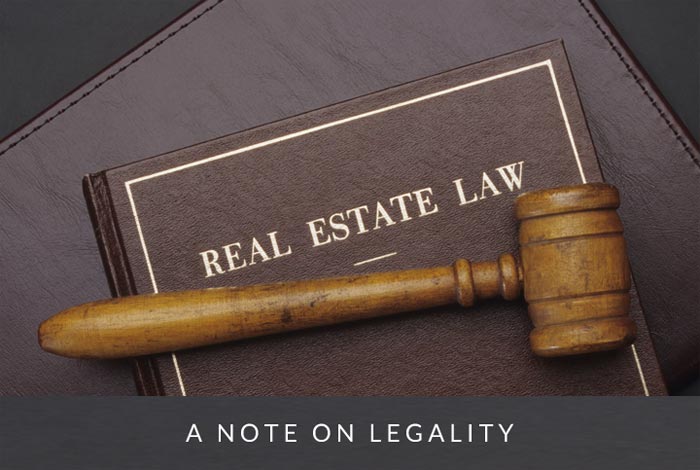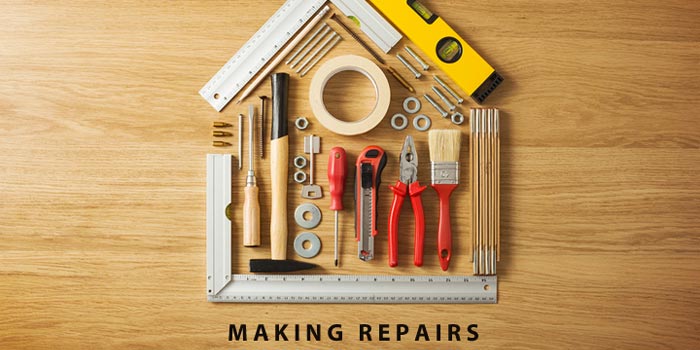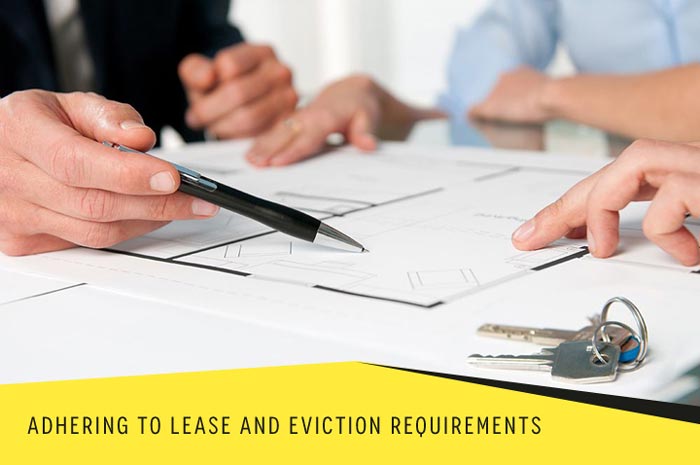
The perks of being a landlord make the job seem pretty appealing; all you have to do is find a good property, find a good tenant, then collect monthly checks indefinitely that more than pay for your own expenses. But remember, it’s still a job and there are still things you’re responsible for as the owner of the property. Unfortunately, landlord responsibilities can get muddled by complicated legal language and misinterpretations, as well as ambiguities about what landlords and tenants are separately responsible for.
That’s why we decided to create this simple, clear guide on what landlords are actually responsible for.

First, it’s important that we note that while there are some federal landlord laws and a number of “general rules” that apply in the vast majority of areas, there are still state and local laws that dictate what landlords are responsible for in different areas. Therefore, this guide can only give you general rules and guidelines for landlords. If you want to be in full compliance, make sure you consult your own region’s local laws.
You’ll need to keep your property in full compliance with your local and state building codes at all times. If there’s ever an infraction, it’s your responsibility to correct it as soon as possible, and if the infraction presents a safety hazard, you’ll be responsible for having the tenant vacate the premises as a precaution. Local and state building codes vary, but most of them cover the same ground, ensuring the structural integrity and function of the building and surrounding areas.
The term “structural components” may seem ambiguous, but it simply refers to any parts of the property that are necessary for the property to remain standing and functional. For example, if your front porch has rotting wood and might give way at any minute, it’s your responsibility to fix it. If your house’s foundation is shaky or damaged, it’s your responsibility to repair it. These aren’t typically cheap repairs, but they’re necessary if you want to avoid being legally responsible for a tenant getting hurt.
Your unit must also be suitably protected against weather and “the elements,” which covers a lot of ground. Most of these repairs are “common sense” landlord responsibilities. For example, if there’s a hole in the roof and water leaks into your top-floor apartment whenever it rains, it’s your responsibility to repair the damage. If the pipes freeze in the middle of winter due to poor insulation, it’s your responsibility to ensure the proper flow of water (as well as the safety of your occupants by preventing the possibility of bursting pipes).
Again, this boils down to a “common sense” landlord responsibility. All your occupants need to have readily available access to heat, electric, and hot/cold water at all times. Depending on your local laws, you may be required to provide this on your own, incorporating utility costs into the rent you charge your tenants, or you may have the tenant sign up as the “owner” of these utilities. The breakdown of your housing unit (i.e., whether or not there are multiple families) will also determine this. In any case, if a line is cut or if a service is disrupted on your property, it’s your responsibility to fix it.

Though a few of the above responsibilities already involve the landlord making repairs, it’s worth including as a general category. If anything is damaged on the property—for example, if a tree falls and damages the siding of the house or breaks a window—it’s your responsibility to fix it. There’s only one exception here, but it’s a big one; the landlord is not responsible for repairing any damage that’s directly the fault of the tenant or the tenant’s guests and pets. For example, if your tenant breaks a window by throwing a brick through it, you’re not responsible for repairing that damage.
Again, these are ambiguous terms subject to different potential definitions. However, you can mostly rely on your instincts here. If your building becomes infested with insects or rodents, it’s your responsibility to get rid of them. If a neighbor or another tenant is unreasonably disruptive throughout the night, it’s your responsibility to step in and try to resolve the issue. If there’s unhygienic or unsuitable living conditions as the result of some exterior force, it’s your responsibility to correct the issue.
When one tenant moves out, it’s your responsibility to run a handful of property inspections (and even if it wasn’t, you’d want to anyway to evaluate damage). Scout for any damage, defects, or repairs that need to be made before seeking a new tenant to replace them.

Finally, you’ll need to hold yourself accountable to any additional stipulations outlined in your lease agreement. If your tenant refuses to hold up his/her end of the agreement, you’ll also need to follow eviction requirements carefully.
These are the biggest areas of landlord responsibility that you’ll need to be prepared for. Even though local and state laws can vary, most of them only vary in terms of specifics related to these topics; for example, you’ll still be responsible for making repairs, but the types of repairs you’re responsible for may extend further depending on where you live. If you’re prepared for taking over these responsibilities, you’ll be ready to take on the role of landlord. Just make sure you remain in compliance so you don’t face the possibility of legal action later on.
If you’re interested in getting more done as a landlord, with less stress in your own life, consider enlisting the help of property management services. Sign up for a free rental analysis with Green Residential today!
